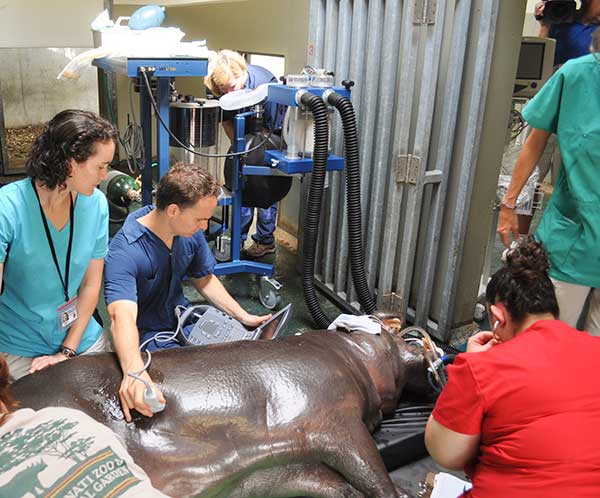In an effort to continually improve, innovate and refine our veterinary anesthesia machines, Vetland Medical continually researches the equipment and techniques used in many different facilities to determine what works, what can be improved and what changes can be made to keep the patient safe.
In 2013, Vetland Medical contacted the Louisville Zoo with the hope of observing and viewing their procedures and viewing their facilities for our own educational purposes. The Louisville Zoo agreed and soon, Vetland was invited to witness a procedure on a lion while under anesthesia. During the procedure, we observed that the zoo was utilizing a veterinary anesthesia machine that required patients to be manually ventilated. The Vetland Medical team knows how inconvenient it is to manually ventilate a large animal such as a lion and decided to help The Louisville Zoo.
That same week, Vetland Medical donated one of our LAS-4000 Large Animal Anesthesia Machines to the Louisville Zoo and promised to work closely with them to provide technical services and support for as long as they had the machine. In return, the Louisville Zoo has helped Vetland Medical. By allowing our team to observe and learn the challenges face by a zoo, we, at Vetland Medical, can continue our history of innovation in Animal Healthcare.
The Louisville Zoo’s hospital supervisor, Jamie Huber says, “The Vetland anesthesia machine helps us provide state-of-the-art care for our animals at the Louisville Zoo. Whether for a regular check-up or a sick animal, our new anesthesia machine gives us the access we need to treat our animals with the highest quality care.”
At Vetland Medical, we have a special place in our hearts for animals. We strive to improve veterinary healthcare through our products and appreciate the opportunity to work with the Louisville Zoo to gain knowledge on our anesthesia systems. Furthermore, we are impressed with the hard work of the Louisville Zoo to care for their animals, protect the future legacy of endangered species and educate the public on a wide range of ecological issues.





